Photographs: Reuters Rajni Bakshi
The transition towards a degrowth society also requires a reexamination of the idea of democracy.
In case the deliberations at the Rio+20 Summit seem too distant and abstract here are some close to home environmental wake-up calls.
India is at the top of the list of countries which are dangerously depleting their ground water resources. This is the finding of the United Nations World Water Development report which charts global trends in water availability and usage.
Across the world the rate of extracting groundwater has tripled over the past 50 years and continues to increase at the rate of about 1 to 2 per cent annually. Agriculture accounts for 87 per cent of this ground water usage in India.
To make matters still worse India accounts for 26 per cent of the world's population that is now afflicted by desertification, land degradation and drought. This has serious implications for future food security.
In Punjab, which is considered one of the major breadbaskets for the whole of Asia, the ground water table is falling by two to three meters a year.Click on NEXT for more...
Degrowth: beyond Rio+20
Photographs: Amit Gupta/Reuters
Recently the Prime Minister has renewed the government's commitment to work on watershed management, rainwater harvesting and groundwater recharge.
In a recent rediff report the PM was quoted as saying that over the next five years the government would: "... address issues that come in the way of convergence and integration of programmes like the National Rural Employment Guarantee Scheme, the Integrated Watershed Management Programme, the Programme on Repair, Renovation and Restoration of Water Bodies and the Rainfed Area Development Programme."
Why are such assurances not particularly comforting? There is after all a remarkable array of innovative work in water management, across India. Such work certainly needs to by increased and scaled up. But clearly that is not enough.
Click on NEXT for more...
Degrowth: beyond Rio+20
Photographs: Amit Dave/Reuters
Water woes will eventually defy all piece-meal solutions. There may be no escape from rethinking and redefining economic growth.
Thus while the negotiations and deals struck this week at Rio+20 are indeed vital, those looking for more imaginative and radical ideas will have to wait for an upcoming conference dedicated to 'Degrowth'.
The Third International Conference on Degrowth for Ecological Sustainability and Social Equity is scheduled to be held at Venice in September this year.
This series of conferences is the work of academics, activists and technical experts who argue that the world is in the midst of a 'Great Transition' to radically different modes of industry, consumption and resource use.
Rallied by the slogan "Degrowth as a passage of civilization", participants at the Venice meeting will focus on three key areas - Commons, Work and Democracy.
Click on NEXT for more...
Degrowth: beyond Rio+20
Image: An environmentalist embraces a globe at the entrance of the Brazil Pavilion for the Rio+20 United Nations sustainable development summit in Rio de Janeiro.Photographs: Nacho Doce/Reuters
Votaries of Degrowth are calling for new models of ownership of resources so as to ensure fair and sustainable management as well as protection of common goods and resources - most notably water.
'Commons' is a term used to refer to all goods, knowledge, services, tools, infrastructures, social norms and institutions that need to be shielded from exclusive ownership, either private or public.
At present much of the world's common resources are almost completely subject to market forces.
In contrast to this, the Degrowth approach would foster management systems that ensure universal access and at the same time prevent over-depletion. This means ensuring that usage patterns must be respectful of the geo-bio-chemical cycles and timing of regeneration of natural resources.
Click on NEXT for more...
Degrowth: beyond Rio+20
Image: A demonstrator wears a costume that represents the Amazon rainforest during a march at the People's Summit at Rio+20 for Social and Environmental Justice in Rio de Janeiro.Photographs: Ana Carolina Fernandes/Reuters
Degrowth is essentially a platform on which people from across the world are looking for ways to either preserve or create convivial and community ties that create a healthy relationship of humans with each other and other living forms.
They seek to develop the concept of a "society of the commons". That is, a society capable of properly governing basic material and cognitive resources, indispensabdle and irreplaceable for a good human life.
Gatherings like the one coming up in Venice are intended to ponder if such a shared use of common wealth could be the basis of a new paradigm, a shift in civilization towards more collective responsibility. But the challenge lies in figuring out precisely what kinds of economic models, behavior patterns, lifestyles and forms of social organization will make this possible.
Clues for forming such systems are partly being sought from among communities and social groups that already have experience of such collective responsibility and respect for commons. Such examples are to be found both in many tribal societies and in some new initiatives to forge values based collectives.
Click on NEXT for more...
Degrowth: beyond Rio+20
Image: Giant fish made with plastic bottles are exhibited at Botafogo beach, in Rio de Janeiro June 19, 2012.Photographs: Ueslei Marcelino/Reuters
The concept of Degrowth also favors a transition to fair and creative models of production and work. "Work in a degrowth perspective should be limited and shared" says a note on the website of the network.
"It should return satisfaction to those who perform well, creating conditions of mutual, creative and loving partnership between all those who, in one way or another, contribute to the achievement of the works, and then offer the others works and services to help improve conditions of life on this planet."
Again the question is how do we invent new forms of decent, sustainable and satisfying work, imbued with a spirit of responsibility and mutual help?
The transition towards a degrowth society also requires a reexamination of the idea of democracy. At present electoral democracy is dependent on growth models which hold forth the promise of unlimited improvement in people's lifestyle and consumption patterns. Therefore, the degrowth perspective will need to offer creative thinking on the problem of power and forms of democratic participation.
Within the framework of conventional economics and in the world of the policy makers gathered at Rio+20 the concept of Degrowth may seem absurd. But history is full of examples of futuristic ideas being rejected by the orthodoxy that is dominant at any given time. The history of sciences has certainly proven that many good ideas start out by looking impossible.

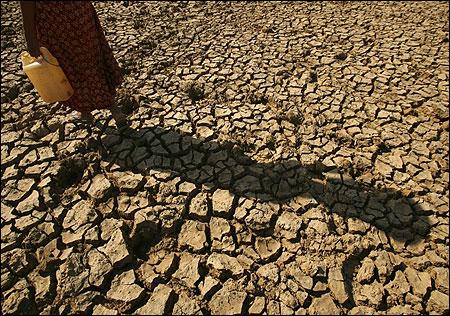
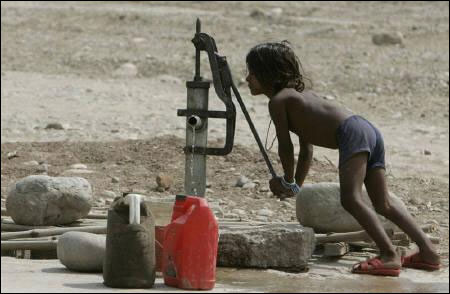
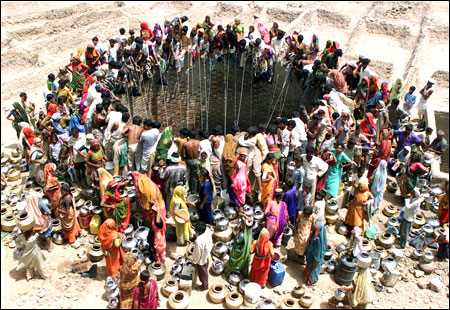
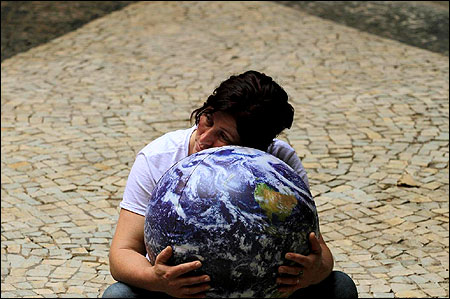

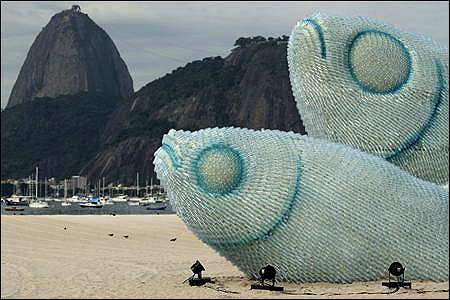
article